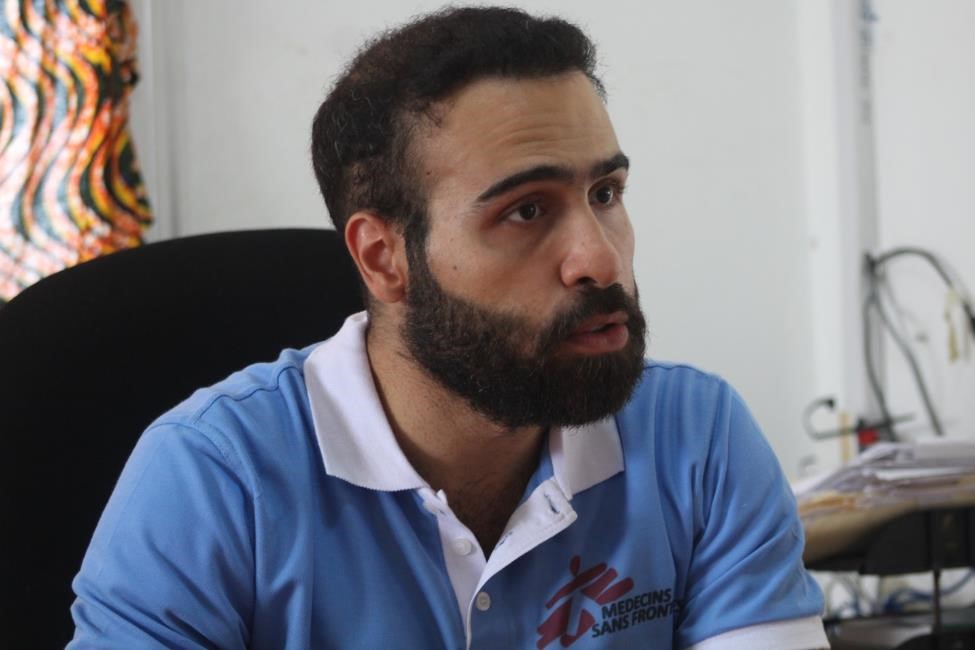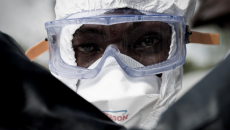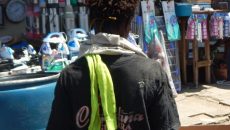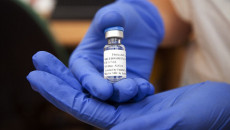MONROVIA, Montserrado – Hassan Nasser, a psychiatrist working with the Médecins Sans Frontières’ Mental Health Project in Liberia, has disclosed that the organization is providing treatment to at least 80 mental health patients in Montserrado every month.
Nasser made the statement recently at a program marking the celebration of World Mental Health Day in Monrovia.
He said the MSF, through its mental health program which began in 2017, currently operates five clinics in communities in Montserrado. They include Pipeline, Clara Town, Bensonville, and Bromley. He said the fifth clinic was launched in West Point in July 2019.
The clinics, according to him, are part of efforts to address some of the critical mental health conditions in the country and has catered to at least 1,500 patients, with different health conditions.
“There are nine clinicians on job training at the five clinics,†he said.
Since the opening of the West Point clinic, Nasser said MSF has now decided to do more capacity building training and improve the quality of services in the clinics before considering moving to other parts of the country.
“MSF has brought into the country psychotropic medications to include antipsychotic and treating patients suffering from epilepsy, depression, anxiety, psychosis, among others,†he disclosed.
“All treatment for mental health conditions at the five clinics is free of charge.â€
He said much of the stress that Liberians face that contributes to the prevalence of mental health issues are related to the 14 years of civil war in the country, the Ebola outbreak, and the current economic condition.
Apart from the free treatment provided to patients, Nasser said MSF also provides free psychosocial counseling, consultations, and awareness to several communities in Montserrado.
At the World Mental Health Day in Monrovia, community volunteers from MSF’s mental health program performed a drama to advise Liberians against stigmatizing people affected by mental health illness.

MSF’s community volunteers perform a drama advising Liberians to stop stigmatizing against persons affected by mental health illness. Photo: Zeze Ballah
The drama explained the story of a mother who threatens to take her children out of a school if the principal did not prevent a student with epilepsy from being in the same classes as her children.
John Brown, who narrated the drama, said he saw himself in the play, being someone recovering from a mental illness. Brown said his mental illness came around in 2011 after completing secondary school, largely due to depression over the death of his father.
“My late father was very supportive of my education and wanted to see me complete university,†he said.
“Things became very difficult and there was no means for me to forward my education.â€
He said other family members were not willing to support his education: “My auntie told me that she was not the one that killed my father. I again became frustrated and started to have sleepless nights for several weeks.â€
He later wound up at the E.S. Grant Mental Health hospital in Duport Road, Paynesville.
“The denial stage of any mental health illness is very bad,†he recalled, noting his initial reluctance to admit that he was experiencing a mental illness.
Because of this, he said he got readmitted at the mental health facility five times before accepting to take his medication. He praised MSF Liberia for contributing to his full recovery.
A mental health advocacy group under the banner of Cultivation for Users’ Hope also formed part of activities marking World Mental Health Day celebration.
The head of the group, Bill Jallah, cautioned Liberians against stigmatizing people living with mental health illnesses.
“Although the quality and effectiveness of mental health treatments and services is gradually improving in the country, therapeutic revolutions in psychiatry have not yet been able to reduce stigma,†Jallah said.
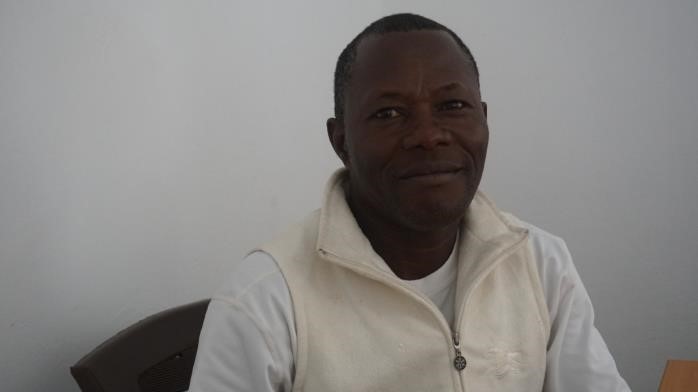
(L-R) Bill S. Jallah, Head of Cultivation for Users’ Hope, and Hassan Nasser, a psychiatrist at Médecins San Frontières Mental Health Project. Photo: Zeze Ballah
He described stigma as a factor that can lead to more negative outcomes, as it can cause patients to delay getting treatment.
Much of the stigma in Liberia come from a lack of awareness and education about the nature and complications of mental illnesses.
Featured photo by Zeze Ballah
